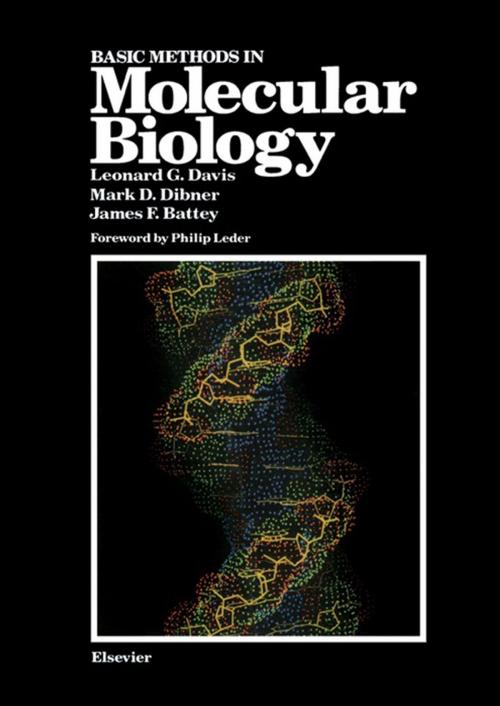Basic Methods in Molecular Biology
Nonfiction, Science & Nature, Science, Other Sciences, Molecular Biology| Author: | Leonard Davis | ISBN: | 9780444601490 |
| Publisher: | Elsevier Science | Publication: | December 2, 2012 |
| Imprint: | Elsevier | Language: | English |
| Author: | Leonard Davis |
| ISBN: | 9780444601490 |
| Publisher: | Elsevier Science |
| Publication: | December 2, 2012 |
| Imprint: | Elsevier |
| Language: | English |
Basic Methods in Molecular Biology discusses the heart of the most recent revolution in biology—the development of the technology of genetics. The achievements in this field have simply changed what biologists do and, perhaps even more important, the way they think. Moreover, never before have scientists from such a broad range of disciplines rushed into such a small and slightly arcane field to learn and carry off a bit of the technology.
This book comprises 21 chapters, opening with three introductory ones that discuss the basics of molecular biology; the tools of the molecular biologist; and general preparations, procedures, and considerations for use of the book. The following chapters then discuss cloning vectors and bacterial cells; preparation of DNA from eukaryotic cells; probing nucleic acids; plasmid DNA preparation; DNA restriction fragment preparation; purification of DNA; and preparation and analysis of RNA from eukaryotic cells. Other chapters cover preparation of DNA from bacteriophage clones; cloning DNA from the eukaryotic genome; subcloning into plasmids; M13 cloning and sequencing; further characterization of cloned DNA; transfection of mammalian cells in culture; protein methods; general methods; and specialized methods.
This book will be of interest to practitioners in the fields of biology and molecular genetics.
Basic Methods in Molecular Biology discusses the heart of the most recent revolution in biology—the development of the technology of genetics. The achievements in this field have simply changed what biologists do and, perhaps even more important, the way they think. Moreover, never before have scientists from such a broad range of disciplines rushed into such a small and slightly arcane field to learn and carry off a bit of the technology.
This book comprises 21 chapters, opening with three introductory ones that discuss the basics of molecular biology; the tools of the molecular biologist; and general preparations, procedures, and considerations for use of the book. The following chapters then discuss cloning vectors and bacterial cells; preparation of DNA from eukaryotic cells; probing nucleic acids; plasmid DNA preparation; DNA restriction fragment preparation; purification of DNA; and preparation and analysis of RNA from eukaryotic cells. Other chapters cover preparation of DNA from bacteriophage clones; cloning DNA from the eukaryotic genome; subcloning into plasmids; M13 cloning and sequencing; further characterization of cloned DNA; transfection of mammalian cells in culture; protein methods; general methods; and specialized methods.
This book will be of interest to practitioners in the fields of biology and molecular genetics.















